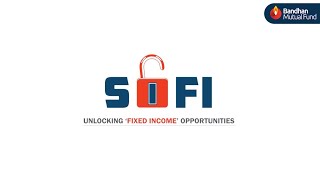Category : New to Investing August 7, 20245 minutes read
Index funds are a type of mutual fund designed to track the performance of a benchmark index, such as the Nifty 50 index or Sensex. They follow a passive investing strategy, aiming to replicate rather than outperform market returns. For investors curious about what are index funds, this guide explains their meaning, benefits, risks, and how they compare to ETFs.
There are several types of index funds, including equity-based funds (broad market, sectoral, and factor funds), debt-based funds, commodity-based funds, and international index funds. Within equities, investors may also explore small-cap index funds, mid-cap index funds, and large-cap index funds, depending on their risk tolerance and investment goals.
The key advantages of index investing include lower costs, consistent performance, and minimal research requirements. Investors often choose low-cost index funds for wealth creation, while also benefiting from potential index fund tax benefits. However, it is important to be aware of risks such as market fluctuations, tracking errors, and the disadvantages of index funds, including limited flexibility and a lack of active management.
By understanding index fund returns, associated risks, and the principles of passive investing, investors can make informed decisions and use index funds as part of a balanced, long-term investment strategy.
Ever wondered if there’s a simple way to participate in the stock market without picking individual shares? That’s where index funds come in. So, what are index funds exactly? These are mutual funds that track a specific market index, aiming to replicate its performance rather than beat it.
In this guide, we’ll explain how to invest in index funds in India, the benefits they offer, and the risks you should be aware of. From understanding different types of index funds to exploring tax benefits, returns, and their role in passive investing, you’ll gain a complete overview to make informed choices as an investor.
Index funds are funds that track a particular index. For instance, in India index funds may track the Nifty 50 index, Nifty 100 index, Nifty 200 etc. Index funds invest in the same securities as the respective index does. A market index could contain securities, such as stocks or bonds.
When trying to understand what are index funds, it’s important to understand that index funds do not use active investment strategies. Instead, they imitate the composition and returns of the chosen index.
What is the Meaning of a Benchmark Index?
Let’s understand what the meaning of the Benchmark Index is. Simply speaking, a benchmark index consists of the best representation of securities trading in a particular market. Benchmark indices broadly showcase records that serve as reference for measuring the execution of speculation funds. Some examples include:
- Nifty 50 Index Fund
Nifty 50 index funds are India-centric index funds that track the Nifty 50 index, a benchmark index of the 50 largest and most liquid stocks listed on the National Stock Exchange of India (NSE).
- Sensex Index Fund
Sensex is another popular index in India. These funds track the Sensex, a benchmark index of the 30 largest and most liquid stocks listed on the Bombay Stock Exchange.
Types of Index Funds
To understand what are index funds, it is vital to go through the different types of index funds, each outlined to track a particular benchmark index:
Equity-Based Index Funds
Equity-based index funds offer investors an opportunity to track equity markets. These equity funds may be a suitable investment option for investors seeking to passively invest in equities.
- Broad Market Index Funds:
These index funds track broad market indices such as Nifty 50, Nifty 100, S&P Index. These funds allow investors to track certain indices and potentially benefit from their performance.
- Sector/Theme Index Funds:
These index funds concentrate on a specific industry. They track the performance of a particular sector or theme. Investors may diversify their portfolio across sectors/themes by investing in these funds.
- Factor Index Funds:
These index funds use a single factor or a combination of factors to build a portfolio with specific characteristics. For instance, an index fund may track stocks with high momentum to potentially benefit from the performance of high-momentum stocks.
Debt-Based Index Funds
- Target Maturity Index Funds
These index funds track a debt or gilt index for a specific period. These funds have a pre-established maturity year.
- Constant Maturity Index Funds
These index funds track a debt index and aim to potentially maintain an average portfolio maturity.
Start investing in index funds to potentially create wealth in the long-run. Invest with Bandhan Mutual Fund today!
Commodity-Based Index Funds
These index funds track indices related to a specific commodity. This may include valuable commodities such as gold or silver. Investments in commodity-based index funds may potentially allow investors to diversify their portfolios.
International Index Funds
As the name suggests, international index funds track the international markets or international bond indices. They can broadly be divided into the following:
- International Equity Index Funds:
International equity index funds track international markets. For instance, a S&P index fund tracks an international index and attempts to provide investors with the potential benefits of diversification.
- International Debt Index Funds
These funds pool money from investors into a diversified portfolio of international debt securities such as bonds or government securities issued by foreign companies or governments. The risk for this scheme is still significant, despite its investments in fixed-income securities. Investments in foreign securities are subject to exchange rate risks. The returns may also be affected by global socio-political circumstances.
Read more about international mutual funds in India!
Small-Cap Index Funds
What are small cap index funds? These track lists comprise small-cap companies, which are by and large more up-to-date and have higher development potential. Financial specialists looking for higher growth and willing to endure increased instability may consider these funds.
Mid-Cap Index Funds
Mid-cap index funds are funds that fall between small-cap and large-cap index funds. They typically adjust between development potential and stability. They are a good investment option for speculators seeking out a mid-ground between small-cap and large-cap investments.
Large-Cap Index Funds
What are large cap index funds? These funds mirror records containing well-established, huge companies. They are considered more steady and appropriate for risk-averse investors.
Index funds are a type of mutual fund scheme that track a benchmark index such as Nifty 50, Nifty 100, etc. Index funds can broadly be divided into 4 types:
- Equity-based index funds: These may include broad market index funds, sector/theme index funds and factor index funds.
- Debt-based index funds: These may include target maturity index funds and constant maturity index funds.
- Commodity-based index funds: These funds track an index related to a specific commodity
- International index funds: These may include international equity index funds that track international markets or international debt index funds that track international bond indices.
- Small-cap index funds: These funds track indices that comprise of small-cap companies.
- Mid-cap index funds: These funds track indices that comprise of mid-cap companies
- Large-cap index funds: These funds track indices that comprise of large-cap companies.
Passive investing includes building an index fund portfolio in India that closely duplicates a specific market index and dynamically contributes. Fund managers typically invest in proportion to an index’s composition and seek to emulate its returns. After understanding what is an index mutual fund, you may look for effective passive investing strategies.
Benefits of Passive Investing
Below are the key advantages of passive investing:
- Lower Costs
Passive investing costs are much lower than active investment, making effective Index fund returns potentially higher. Hence, many investors prefer to go for low-cost index funds.
- Diminished Dangers
Passive investments diminish the dangers related to personal stock selection since you do not have to do any research yourself. You can simply choose the index whose returns you want to track.
Invest in diversified long-term mutual funds to weather short-term market volatility.
- Consistency
Passive methodologies focus on index fund returns that closely mirror market execution thus advancing long-term growth.
Passive investing includes building a portfolio that closely duplicates a specific market index and dynamic contribution. Passive investing can be beneficial as it has lower costs and is consistent. It may also potentially diminishes dangers related to personal stock selection.
Below are the key differences between index funds and ETFs:
| Parameters | Index Funds | ETFs |
| Structure | Index funds replicate a specific index. For eg. Nifty 50, Nifty 100 etc. | ETFs are traded like stocks all through the day. |
| Costs | Although have lower expense ratios compared to actively managed funds, frequently have higher cost ratios compared to ETFs due to variables like regulatory costs. | ETFs are passively managed funds. They typically have lower expense ratios compared to actively managed funds. |
| Investment Method | One can invest in index funds in lumpsum or via SIPs | ETFs accept only lumpsum investments. |
| Valuation | Index funds are valued at the end of each trading day. | ETFs are valued continuously. |
Invest in India’s Banking Sector with Bandhan Nifty Bank Index Fund
Now that we understand what index funds are, let’s look at some risks to consider before investing in them. While index funds offer a few advantages, it is vital to be mindful of the potential disadvantages of index funds to make an informed decision while investing.
- Showcase Changes
Index funds are not resistant to showcase instability, meaning, if the market value of the securities in the index fluctuates, the returns of the index fund will also fluctuate. Hence, it is essential to consider this among the top index fund risks.
- Limited Adaptability
Index funds are obliged by the property of the target record, on the off chance that the index’s composition changes. What this means is that if a stock in the index becomes overvalued, its weightage in the index actually increases. Thus, you cannot alter the investment according to the market conditions. It is one of the disadvantages of index funds.
- No Diverse Strategies
Active management allows fund managers to implement different strategies that can maximize potential returns. Unfortunately, the same cannot be applied to index funds because they simply follow an index composition’s investing.
Understanding Tracking Errors
An important aspect of index investing is to be aware of tracking errors. Tracking blunders could be a significant metric that measures the uniqueness between an index fund’s execution and the execution of the fundamental index it points to reproduce. It occurs due to various reasons such as:
- Costs
Administration expenses and working costs affect returns, causing deviations from the index’s performance. Hence, it is important to select low-cost index funds
- Rebalancing
Customary rebalancing to preserve the index’s composition can bring about exchange costs, driving the following error.
- Profits and Charges
Reinvestment of profits and the assessed treatment of distributions might not reflect the index’s methodology. For instance, a dividend reinvestment immediately may give potentially higher returns than reinvesting at a later point. Similarly, special dividends or bonus share issues will distort index fund returns.
- Index Changes
When the target index changes its constituents, the fund manager must quickly pivot to reflect these changes. Otherwise, the returns will differ from the index.
We now know what are index funds. Let’s understand some points investors must consider before investing:
Objectives
Decide whether index funds align with your speculation goals, such as capital appreciation, income generation, or a combination.
Start investing in index funds to potentially create wealth in the long-run. Invest with Bandhan Mutual Fund today!
Ability to Take Risks
Understand your ability to take risks and select index funds that meet your appetite for stock market fluctuations.
Costs
Compare the cost proportions of different index funds. Typically, index funds should have a low expense ratio. Lower costs mean potentially higher effective returns for you as an investor. However, this may sometimes not be the case, which is why it is imperative to understand what the cost of each fund is in the domain.
- Now that you know what are index funds, let’s do a quick recap of everything we have covered in this guide.
- Index funds are mutual funds that track the composition of an existing index. This allows you to invest passively without spending too much time or money on an investment strategy.
- This has many advantages, including predictability of potential returns, consistent or automated investing and low costs.
- However, after learning what are index funds, it is essential to note that these have potential risks like return variances, tracking errors, and restricted adaptability. It is advised that you invest only after understanding the extent of the pros and cons involved.
Discover the Range of Bandhan Equity Mutual Funds










